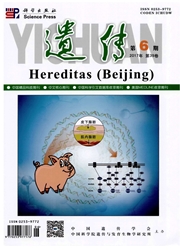

 中文摘要:
中文摘要:
检测生物样本中低丰度的DNA突变或微量等位基因,在癌症、产前诊断及传染病等领域都有很重要的应用价值。近年来发展起来的基于PCR原理富集低丰度DNA突变的常用实验技术,包括低变性温度下的复合PCR(COLD—PCR)、改良型完全富集COLD—PCR(ice—COLD—PCR)、温度耐受性PCR(TF—PCR)、肽核酸钳PCR(PNA—mediated PCR)、野生型阻滞扩增PCR(WTB—PCR)以及数字PCR(digital PCR)等,其基本原理、发展进程以及各自的优缺点各有不同。富集低丰度DNA突变的PCR技术在疾病检测中有一定应用价值。(中华捡验医学杂志,2014,37:958—963)
 英文摘要:
英文摘要:
Detection of low-level somatic DNA mutations and minority alleles within a wild-type sample is crucial in fields of medicine, such as cancer, prenatal diagnosis and infectious diseases. Increasing enrichment methods have been developed to study this challenging area. They are typically segregate by their ability to enrich for, and detect, either known or unknown mutations, including COLD- PCR, ice-COLD-PCR, TT-PCR, PNA-mediated PCR, WTB-PCR and digital PCR. In this review, we discuss theoretical principles and relative advantages and disadvantages of these techniques, and put an emphasis on their applications in fields of diseases. (Chin J Lab Med,2014,37:958-963)
 同期刊论文项目
同期刊论文项目
 同项目期刊论文
同项目期刊论文
 miR396a-Mediated Basic Helix–Loop–Helix TranscriptionFactor bHLH74 Repression Acts as a Regulator fo
miR396a-Mediated Basic Helix–Loop–Helix TranscriptionFactor bHLH74 Repression Acts as a Regulator fo Bcl-2 suppresses activation of VPEs by inhibiting cytosolic Ca level with elevated K efflux in NaCl-
Bcl-2 suppresses activation of VPEs by inhibiting cytosolic Ca level with elevated K efflux in NaCl- A transient gene expression system using barley protoplasts to evaluate microRNAs for post-transcrip
A transient gene expression system using barley protoplasts to evaluate microRNAs for post-transcrip Distinctive expression patterns and roles of the miRNA393?TIR1 homolog module in regulating flag lea
Distinctive expression patterns and roles of the miRNA393?TIR1 homolog module in regulating flag lea Regulation of auxin response by miR393-targeted transport inhibitor response protein 1 is involved i
Regulation of auxin response by miR393-targeted transport inhibitor response protein 1 is involved i 期刊信息
期刊信息
